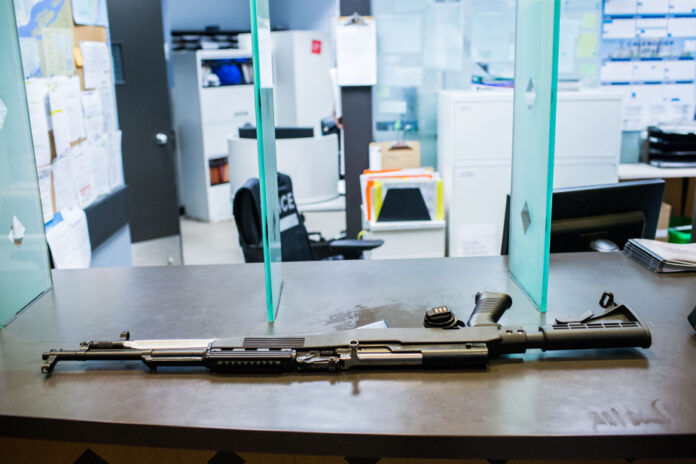(Ottawa) Two major Quebec police unions are calling on federal Public Safety Minister Marco Mendicino to return to the charge to ban assault weapons permanently while avoiding including hunting weapons in the lot . The federal government intends to table new amendments to this effect by the end of the month, learned La Presse.
They will be “easier to understand,” said Minister Mendicino’s press secretary, Audrey Champoux. “I hope people will feel like they’ve been listened to,” she added.
The government caused a surprise in February by withdrawing two controversial amendments that added a ban on assault weapons to the gun control Bill C-21. The gesture was welcomed by all the main opposition parties.
Minister Mendicino will give more details on the government’s intentions when he testifies before the House of Commons Standing Committee on Public Safety. His passage is scheduled for next week, but the date has not yet been set.
“We know that assault-style weapons that have been used in mass killings across the country have no place in Canada, but we can do this without attacking the rights, hunters and farmers who have shotguns,” Premier Justin Trudeau reiterated Thursday during his visit to Saskatchewan.
This list of over 300 pages had caused confusion and led to an outcry. In addition to the models already banned, it included the SKS, a military-style weapon frequently used by hunters and Aboriginal people.
The government plans to include some of the recommendations of the Mass Casualty Commission, which looked into the Portapique killings in Nova Scotia. In particular, it suggested reforming the firearms classification system and developing a standardized, simple and consistent list of prohibited weapons. She also proposed to prohibit the use of a magazine of more than five bullets in the Criminal Code.
The Brotherhood of Police Officers of Montreal and the Association of Provincial Police Officers of Quebec (APPQ) are in turn asking that high-capacity magazines be banned. La Presse obtained a copy of the letters that the two unions sent to Minister Mendicino last month.
“On behalf of Montreal police officers, this is to reiterate to you our position that assault-style firearms should be outlawed and that prohibiting such military-style weapons is an essential policy to implement” , writes the president of the Fraternity, Yves Francœur, in his letter dated March 22.
It argues that these weapons “demonstrably and unnecessarily compromise the safety of the public as well as that” of its 4,500 members.
“Therefore, it is important that said weapons are extremely well defined in order to truly prohibit them, without however prohibiting those which are reasonably used for hunting”, he continues.
The March 10 letter from APPQ President Jacques Painchaud takes a similar tone. He points out that his 5,800 members “may one day or another find themselves confronted with this type of assault weapon in the exercise of their duties, as was unfortunately the case for the two Ontario police officers murdered in October 2022”.
He warns the government against including weapons “reasonably used for hunting” in a new definition of prohibited weapons.
“We therefore urge you to be as clear as possible in this regard in order to prevent pro-arms groups from taking advantage of the confusion to misinform the population and thus sabotage a bill that is necessary, desirable and in the best interests of all Canadian citizens,” he wrote.
The misinformation conveyed by the Canadian Coalition for Gun Rights (CCDAF) has been denounced by the group PolySeSouvient, which campaigns for the banning of assault weapons.
The two police unions also urge the federal government to better fund the fight against illegal weapons, “an epidemic that is wreaking havoc and greatly insecure the population of Montreal and Canada,” said Yves Francoeur.
Jacques Painchaud writes that “[…] the prohibition of certain categories of weapons is not a panacea for the use of weapons in general by the criminal world such as street gangs, a phenomenon which rather requires muscular police interventions supported by adequate resources”.
He calls on Ottawa to “fund more” the Royal Canadian Mounted Police, the Border Services Agency and police forces in border towns.


















